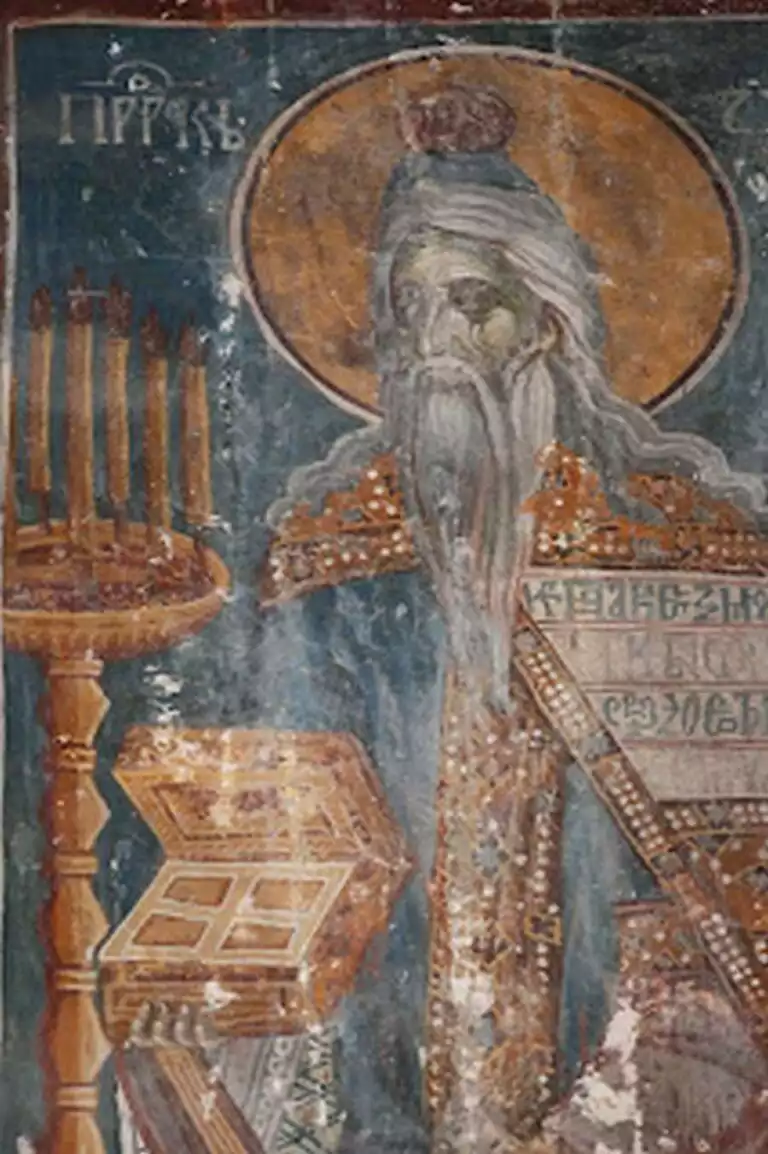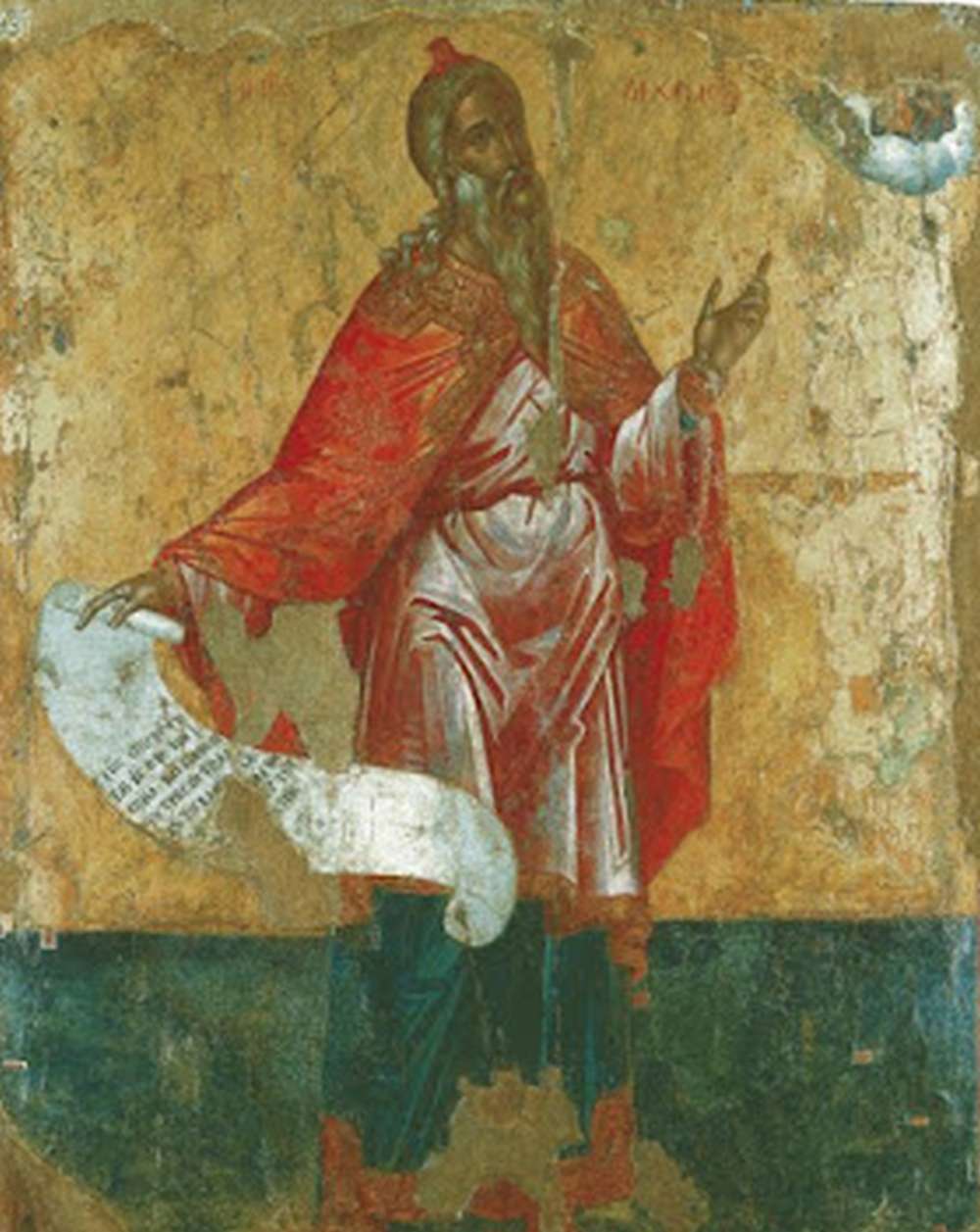
Saint Zacharias, a revered figure in both Judaism and Christianity, stands as an eminent prophet whose teachings and prophecies have left an indelible mark in religious history. Although exact dates of his birth and death remain uncertain, his profound influence is undeniably evident through the centuries. The prophecy of Zacharias, encapsulated in the book bearing his name, forms a crucial part of the biblical canon, resonating with believers for its deep spiritual insights and prophetic foresight.
The Historical Context of Zacharias’ Prophecies
Zacharias, a prophet during a tumultuous period in Israel’s history, emerged as a beacon of hope and spiritual renewal. His era, marked by the return of the Jewish people from the Babylonian exile, was a time of rebuilding and reflection. The temple in Jerusalem, lying in ruins, symbolized the spiritual desolation that had befallen the nation. In this context, Zacharias’ prophecies provided not only a roadmap for physical reconstruction but also a vision for spiritual rejuvenation.
Interwoven with historical narratives, his messages were rich in symbolic imagery, offering both immediate encouragement and long-term eschatological hope. Through his words, Zacharias emphasized the need for moral integrity and devout worship, positioning these as prerequisites for divine favor and restoration. His prophecies, thus, were not mere forecasts of future events but a call to transformative action in the present.
Theological Themes in Zacharias’ Teachings
Delving into the theological depths of Zacharias’ prophecies reveals a tapestry of themes central to both Jewish and Christian beliefs. One prominent theme is the Messianic expectation, vividly portrayed through visions and symbolic actions. Zacharias speaks of a coming figure, a shepherd-king, who would embody divine justice and establish an era of peace. This Messianic vision resonated profoundly with the Jewish people, shaping their expectations and hopes.
Additionally, Zacharias’ teachings are notable for their emphasis on divine justice and mercy. He portrayed God as a judge, holding nations accountable for their actions, yet also as a compassionate redeemer, eager to forgive and restore. This duality highlights the complex nature of the divine character, balancing righteousness with grace.
The prophecies also delve into apocalyptic imagery, depicting cosmic battles and divine interventions. These visions, though enigmatic, offered assurance that God’s ultimate plan for humanity and the world would culminate in triumph over evil and suffering. Zacharias’ insights thus provided a framework for understanding the trials of the present in light of a hopeful, divinely ordained future.
The Visionary Symbolism in Zacharias’ Prophecies
Zacharias’ prophecies are distinguished by their rich, visionary symbolism, which serves as a powerful tool for conveying divine messages. These symbols, ranging from lampstands to flying scrolls, engage the imagination and communicate profound truths about God’s plans for His people. The vision of the lampstand and olive trees, for instance, symbolizes God’s provision of guidance and sustenance to His people, emphasizing that their success hinges not on human might but on divine spirit.
Another significant symbol is the flying scroll, representing the pervasive nature of God’s word and its role in purging evil. Such imagery not only reinforced the importance of adherence to divine law but also assured the faithful of God’s active involvement in their lives. Zacharias’ use of these symbols bridged the gap between the divine and the human, making profound spiritual truths more accessible and relatable.
The Enduring Relevance of Zacharias’ Prophecies
The relevance of Zacharias’ prophecies extends far beyond their historical context, offering timeless wisdom and guidance. In a world often characterized by moral ambiguity and spiritual apathy, his calls for justice, righteousness, and faithfulness resonate strongly. His vision of a just and peaceful world under divine governance provides hope and inspiration for believers striving for a better world.
Moreover, Zacharias’ emphasis on inner transformation and sincere worship challenges contemporary believers to examine their spiritual lives. His message underscores the importance of aligning one’s actions with divine will, fostering a deeper, more authentic relationship with the divine. In this way, Zacharias’ teachings continue to guide and influence spiritual journeys across generations.
In conclusion, the prophecy of Zacharias stands as a testament to the enduring power of divine revelation. His messages, rich in historical context, theological depth, visionary symbolism, and contemporary relevance, continue to inspire and challenge believers. As a conduit of divine wisdom, Zacharias played a pivotal role in shaping religious thought and practice, leaving a legacy that transcends time and culture.
References
- “The Minor Prophets: Zechariah.” Insight.org. Accessed December 16, 2023. insight.org.
- “Biblical Studies Booklists.” Princeton Theological Seminary. Accessed December 16, 2023. ptsem.libguides.com.
- “Common Worship: Canticles.” Church of England. Accessed December 16, 2023. churchofengland.org.
- Petersen, David L. “Haggai and Zechariah 1-8: A Commentary.” Philadelphia: Westminster Press, 1984.

